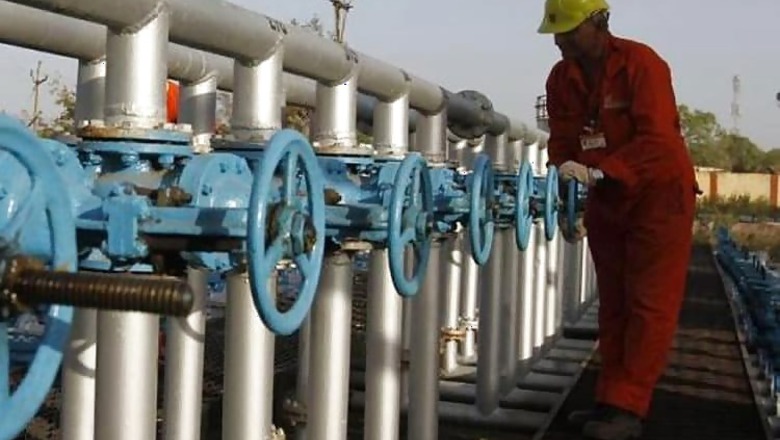
views
New Delhi: India plans to reform rules governing the level of discounts upstream state oil firms including ONGC offer to retailers, a senior finance ministry official said on Friday, a move that could expedite the sale of a stake in the company.
The government hopes to sell shares in ONGC and India Oil Corporation. to raise about a third of its budget target for asset sales of $11 billion and reduce its fiscal deficit to 3.9 per cent of GDP in the 2015/16 fiscal year.
Currently ONGC (Oil and Natural Gas Corp), Oil India and GAIL (India) sell crude and fuels like cooking gas at discounted rates to partly compensate retailers for losses they incur on selling fuels at government-set rates.
But the finance ministry and oil ministry are in talks to work out a mechanism for easing the subsidy burden for the upstream companies, Ratan P. Watal, expenditure secretary at the Ministry of Finance, told reporters on Friday.
Earlier, sources said that the oil ministry had set a new subsidy formula for the April-June quarter that would exempt upstream companies from discounting sales of crude oil and refined products if global oil prices are up to $60 per barrel.
India had to defer plans to sell a 5 per cent stake in state-run oil company ONGC last year as investors wanted a clarity on subsidy payments, which had previously been set by government decree, creating uncertainty around its earnings outlook.
Market experts said that if talks between the two ministries lead to the temporary subsidy arrangement being prolonged, that would make the ONGC stake sale a more bankable proposition.
"Investors have been asking for more clarity on ONGC's subsidy outgo, and that will be key for a divestment to take place," said Mahesh Patil, co-chief investment officer at Birla Sun Life Asset Management.
"We still need to see what the final formula is."
Temporary Relief
Finance Minister Arun Jaitley gave a bullish view on asset sales, telling a news conference called to mark Prime Minister Narendra Modi's first year in power that deals worth 500 billion rupees ($7.9 billion) were "in the pipeline".
Officials worry that a downturn in the Indian stock market, which has unwound most of its gains for the year, could hurt government fundraising plans. India has missed its privatisation target for the last five years in a row.
ONGC shares rose 1.5 per cent on Friday. They have shed 18 percent in the year since Modi's election victory, while the Sensex is up by 15 per cent in that period, according to data.
The oil ministry had set interim rules to exempt upstream state firms from giving any discounts on crude and refined fuels if global oil prices average up to $60 a barrel this quarter.
For prices beyond $60 a barrel the companies will have to give a discount of 85 per cent of the incremental oil prices and this discount will rise to 90 per cent for additional prices beyond $100 a barrel.
ONGC chairman D.K. Sarraf later confirmed receiving a government order concerning the subsidy formula and said the details were in line with media' reporting.
Last quarter, the government had exempted ONGC, Oil India, and GAIL from paying any subsidy after a crash in global crude prices. Currently global oil prices are hovering around $66 a barrel.
On the top of the discount, state-run fuel retailers - Indian Oil Corp, Hindustan Petroleum Corp and Bharat Petroleum - are compensated by the finance ministry for selling cooking gas and kerosene at cheaper rates.
The government directly transfers subsidy for cooking gas into the bank accounts of consumers.
Last fiscal year domestic kerosene sales accounted for a third of overall revenue losses of 723 billion rupees ($11.4 billion) of state fuel retailers.




















Comments
0 comment